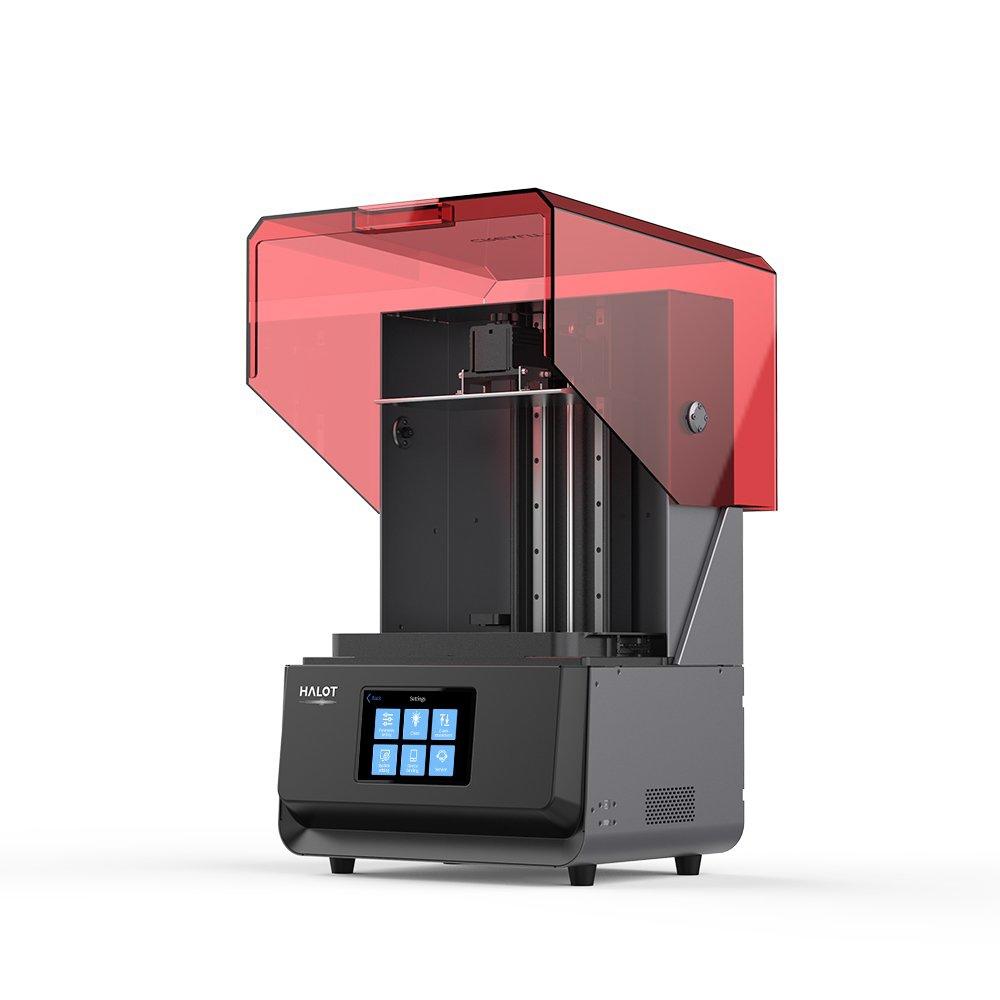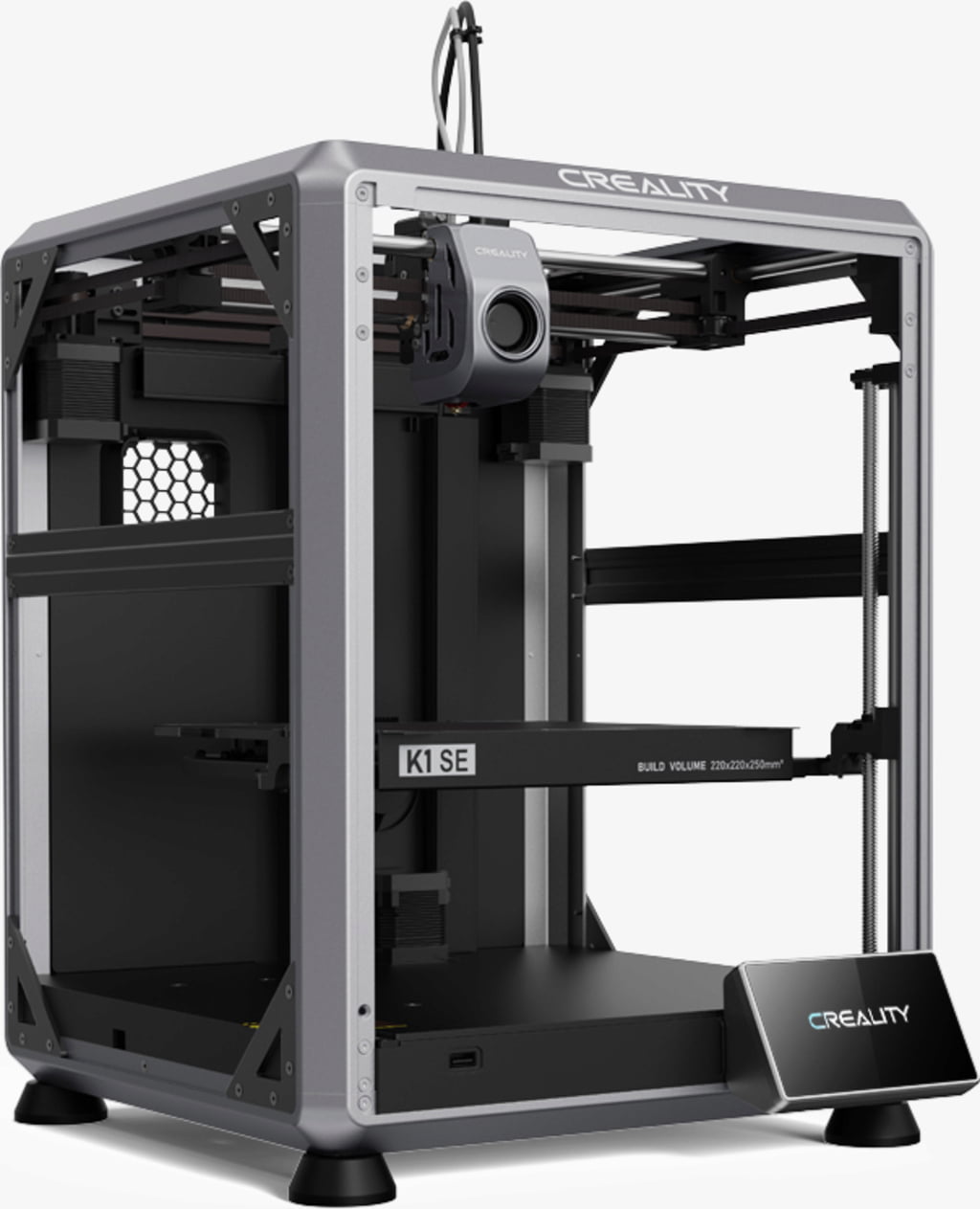Compare Halot Max vs K1 SE
Comparison between the best 3D printers
Choose the best 3D printer at the best price. The cheapest 3D printers are here.
Buy a 3D printer here with 3D Fila.
 |
 |
|
| Model | Halot Max[BUY Halot Max] |
K1 SE |
| Printing Material | Resin | Filament |
| Buy Resin for Creality 3D Halot Max | Buy Filament forCreality 3D K1 SE | |
| Estimated price | $3000,00 | $349,00 |
| Manufacturer | Creality 3D | Creality 3D |
| Release Year | 2021 | 2023 |
| Print Volume [mm] | 293x165x300 | 220x220x250 |
| Printer Size [mm] | 480x387x770 | 355x355x480 |
| Weight [kg] | 32,5 | 10,24 |
| Power Loss Recovery | NO | YES |
| Maximum Resolution [mm] | 0,03 | 0,1 |
| Processor | ||
| Display | Display touchscreen 5'' | Display touchscreen 4,3'' |
| Power Supply | 110/220V / 350W | |
| Connectivity | SD / USB / Wi-Fi | Ethernet / USB / Wi-Fi |
| Operating systems | Windows, Mac, Linux | Windows, Mac, Linux |
| Date of registration in the system | 2022-11-04 | 2023-08-26 |
| Release date | 2021 | 2023 |
| Extra features | The Halot Max printer stands out for its large print size (293 x 165 x 300 mm) and uses SLA technology. It has an integral light source for improved accuracy and a strong core with an advanced operating system. Its Z-axis module ensures high precision, supported by efficient slicing software. The machine offers online OTA updates and boasts an adjustable layer thickness between 10 and 200 microns. Its XY-axis resolution is 3840*2160, with 0.05 mm accuracy, and an integral 405nm light source. The printer includes a 5" touchscreen and multiple connectivity options, such as USB, Creality Cloud, and HALOT BOX WiFi. With cutting-edge technology, the Halot Max is ideal for printing small models with uniform precision, thanks to its self-developed lighting system and stable printing mechanism, which includes dual linear guides, ball screws, and an intelligent brake system. | The Creality K1 SE is a high-speed 3D printer with CoreXY system, capable of printing at up to 600mm/s with acceleration of 20000mm/s². It has a dual-gear extruder, easy-to-replace tri-metal nozzle, automatic leveling, and advanced features such as vibration reduction algorithms and intelligent operation. Its rigid cast aluminum frame ensures stability, while the open-source Klipper-based system offers freedom for customization. It is pre-assembled for a simplified and fast user experience. |
| Support for multiple colors and materials (AMS and CFS) | NO | NO |
Notes * |
||
| Cost-benefit | 5 / 10 | 7 / 10 |
| Hardware | 1 / 10 | 3.5 / 10 |
| Tela | . | . |
| Print volume | 3 / 10 | 3 / 10 |
| Performance | 9 / 10 | 5 / 10 |
| [BUY Halot Max] |
Conclusion |
| In conclusion, the comparison between the Creality 3D Halot Max and the Creality 3D K1 SE highlights significant differences in terms of capabilities, price, and target users. The Halot Max, with its larger print volume and advanced SLA technology, is designed for users requiring high precision and detailed prints. Its strong performance in terms of resolution and stability also suggests it is ideal for professionals or serious hobbyists who prioritize print quality over cost. However, its higher price point may be a barrier for casual users or those new to 3D printing. On the other hand, the K1 SE offers a more affordable entry point for users interested in speed and efficiency. With features like a CoreXY system and automatic leveling, it is well-suited for those who want a user-friendly experience without compromising on performance. This makes it a great choice for hobbyists or beginners who want to explore 3D printing without a substantial upfront investment. Ultimately, the choice between these two printers hinges on specific user needs: for high-resolution, precision printing, the Halot Max stands out as the superior option, while for speed, ease of use, and a modest budget, the K1 SE is a commendable alternative. |

